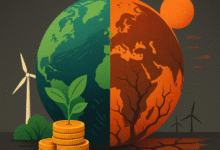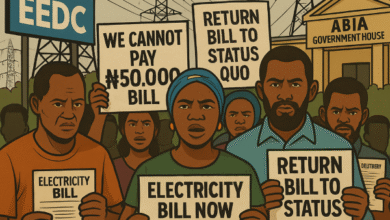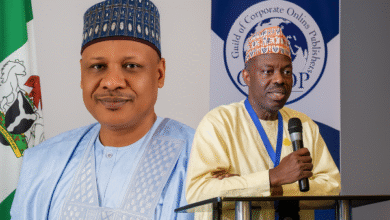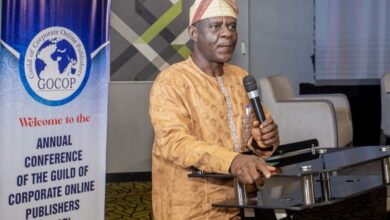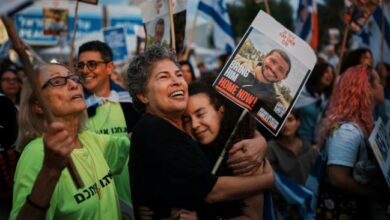US Funding Freeze Takes a Toll on WHO Budget

The United States’ funding freeze has taken a heavy toll on the World Health Organization’s budget as it attempts to steer the fightback against the coronavirus pandemic.
Washington is the biggest single contributor to the United Nations’ health agency.
US President Donald Trump has on Tuesday announced that he was putting the funding on hold, pending a 60- to 90-day review into the WHO’s role in “severely mismanaging and covering up the spread of the coronavirus”.
Trump claimed the COVID-19 outbreak could have been contained “with very little death” if the WHO had accurately assessed the situation in China, where the virus broke out.
Its epicentre is now the United States, where the death toll has climbed above 26,000, with more than 600,000 infections.
READ ALSO: WHO Africa Hosts Hackathons, Offers $20,000 Funds To Fight COVID-19
Worldwide, the pandemic has killed more than 130,000 people and infected at least two million, according to an AFP tally.
Trump said US taxpayers provided between $400 million and $500 million per year to the WHO, while “in contrast, China contributes roughly $40 million a year and even less”.
It added to last week’s charge from Trump that the WHO was “very China centric” despite Washington’s heavy funding.
WHO director-general Tedros Adhanom Ghebreyesus told a press conference on Wednesday that he regretted Trump’s decision.
“WHO is reviewing the impact on our work of any withdrawal of US funding and will work with our partners to fill any financial gaps we face,” he added.
The WHO’s finances are organised in two-year cycles.
The WHO’s budget for the 2018 and 2019 two-year bracket was $5.62 billion, of which $4.3 billion was in specified voluntary contributions, according to figures now updated until the fourth quarter of 2019.
Looking at the specified voluntary contributions that have been fully distributed is one way of making comparisons between the contributions of donors to the WHO.
In this sector, the United States is the biggest contributor with $553.1 million, or 14.67 percent of the total specified voluntary contributions that ended up being fully distributed.
The money, which can often be highly earmarked for particular projects, is paid out throughout the year as projects and needs arise.
The next biggest contributors are the Bill and Melinda Gates Foundation (9.76 percent), the GAVI vaccines alliance (8.39 percent), Britain (7.79 percent) and Germany (5.68 percent).
They are followed by the United Nations Office for the Coordination of Humanitarian Affairs (5.09 percent), the World Bank (3.42 percent), Rotary International (3.3 percent), the European Commission (3.3 percent) and Japan (2.73 percent).
China’s contribution of $7.9 million amounted to 0.21 percent of the total — behind Luxembourg (0.3 percent) and Pakistan (0.36 percent).
Assessed contributions are the dues countries pay to be a WHO member. They are calculated relative to the country’s wealth and population and payable as of January 1.
At $957 million in the last budget cycle, assessed contributions are the second-biggest tranche of the WHO’s funding.
The United States contributed $237 million, nearly 25 percent of the total. China contributed $76 million, or eight percent of the total.
“China speaks extensively to African countries in particular, to position itself as a defender of a more equitable new world order,” said Alice Ekman, the senior Asia analyst at the European Union Institute for Security Studies.
“The WHO is only one multilateral structure among others; China’s influence is significant within the UN system — and it’s not just about its financial contribution,” she told AFP.
Within the specified voluntary contributions sector in the 2018 and 2019 budget — before the coronavirus crisis — the WHO’s biggest spending outlay was on polio eradication (26.51 percent).
Next came increasing access to essential health and nutrition services (12.04 percent); vaccine-preventable diseases (8.89 percent); establishing effective coordination and operations support (6.1 percent), and preventing and controlling outbreaks (5.96 percent).
In terms of regional distribution, it reached those projects via Africa, which received $1.32 billion; the eastern Mediterranean ($1.23 billion); the WHO headquarters ($591 million); southeast Asia and Europe ($223 million each); the western Pacific ($166 million) and the Americas ($24 million).
Professor Guy Marks, president of the International Union Against Tuberculosis and Lung Disease, urged Trump to reverse his “reckless decision”.
He said withdrawing funding would have consequences far beyond COVID-19 that could prove “catastrophic for WHO’s other disease control programmes around the world”.
Juliet Ekwebelam


